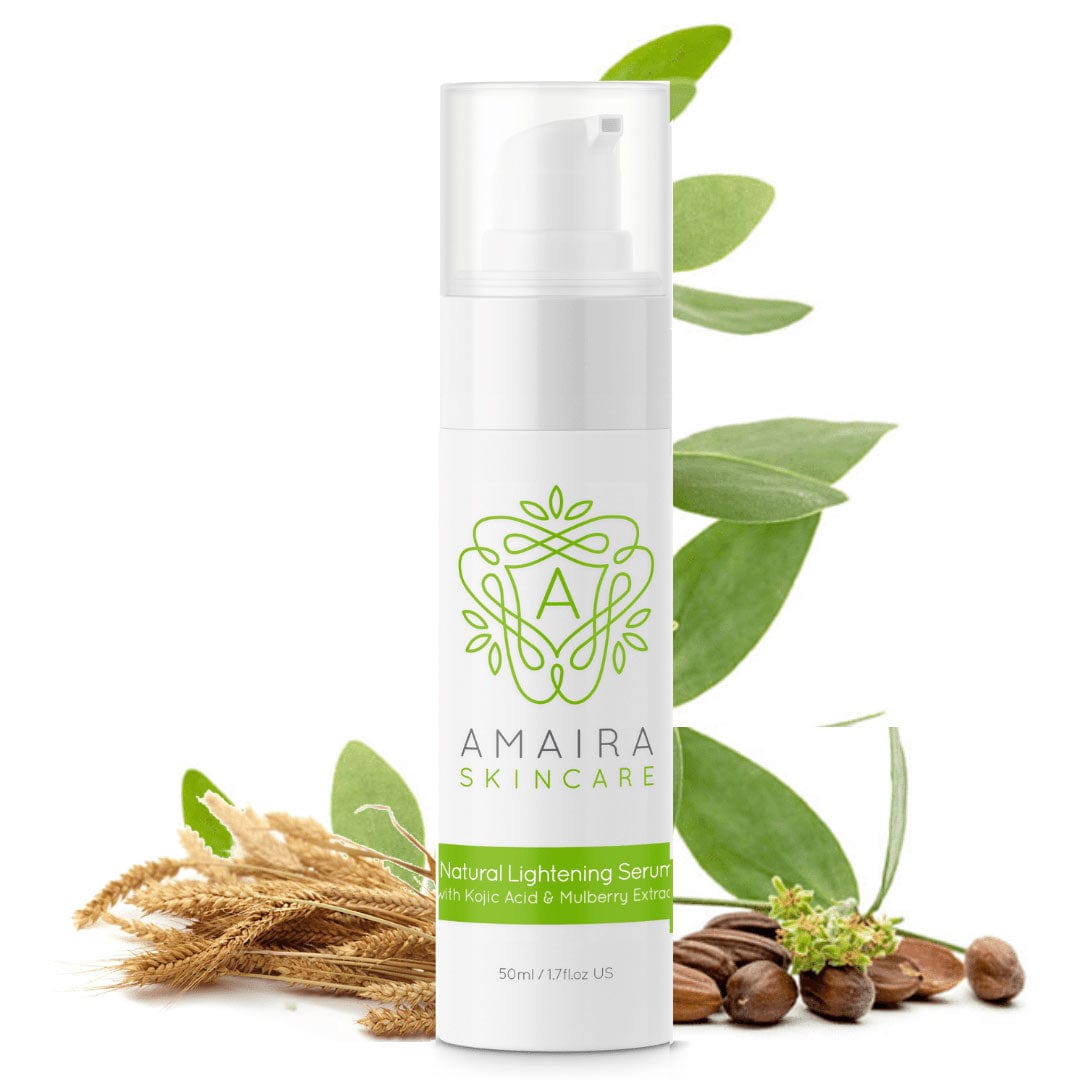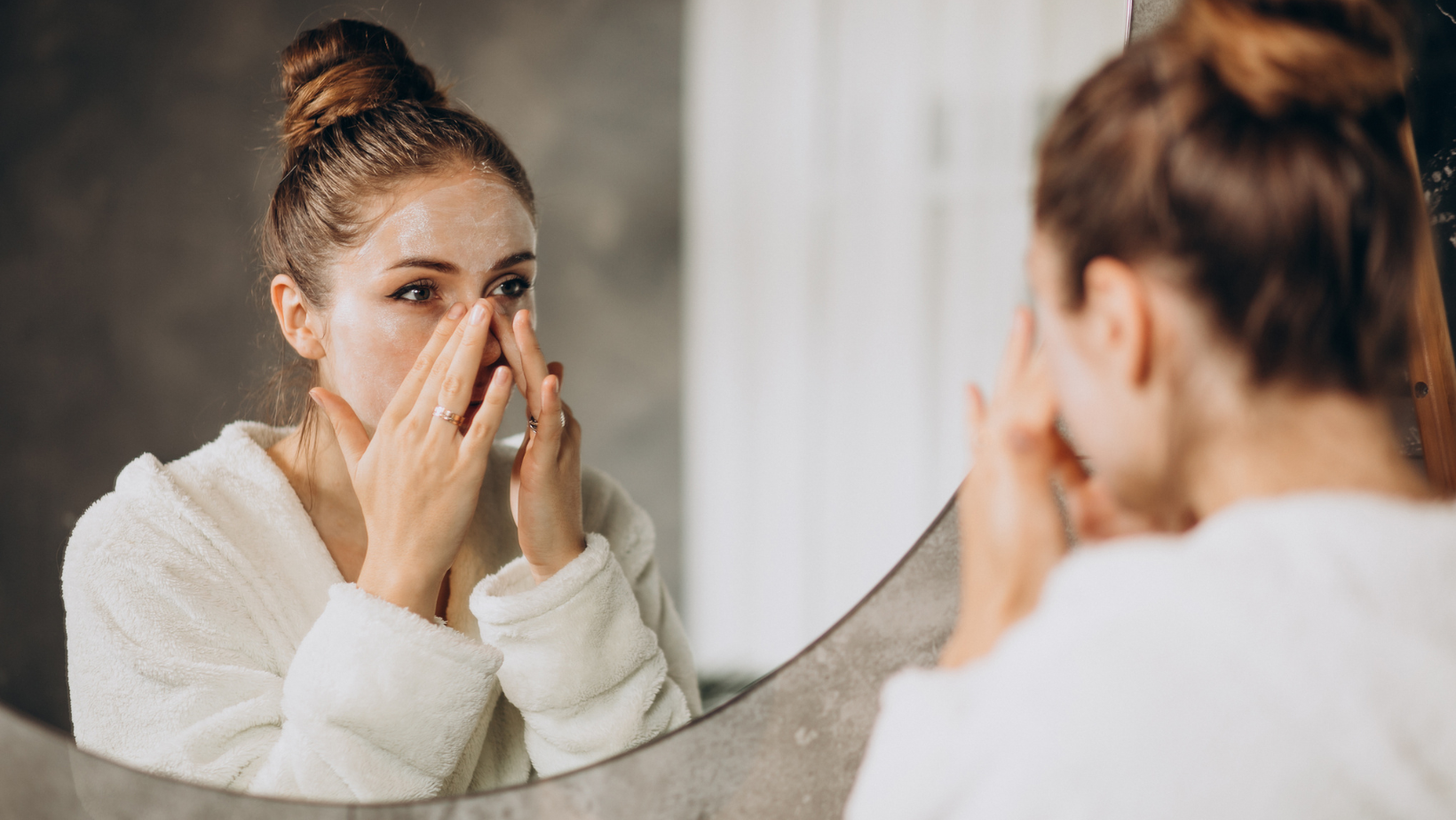Finding dark spots on your vagina can be alarming and may raise concerns about your health. It's natural to feel worried or anxious when you notice changes in your body, especially in sensitive areas.
However, it's important to understand that dark spots on the vaginal area are quite common and can be caused by a variety of factors, most of which are harmless and treatable.
What Causes Dark Spots on the Vagina?
The appearance of dark spots on the vagina can stem from numerous factors. Here are some common causes:
1. Aging:
As we age, our bodies undergo many changes, including the skin on the vagina and vulva. Hormonal changes, particularly the decline in estrogen during menopause, can cause the skin to appear darker. Estrogen helps maintain skin thickness and elasticity, and when its levels drop, the skin can become thinner and more prone to discoloration.
2. Friction:
Regular activities such as wearing tight clothing, biking, or engaging in sexual intercourse can cause friction, leading to skin discoloration in the vaginal area. This friction can cause the skin to thicken and darken over time. Additionally, shaving or waxing the pubic area can also contribute to friction and irritation, which may result in dark spots.
3. Infections:
Certain infections, such as vulvovaginitis or yeast infections, can cause inflammation and changes in skin color. These infections often come with other symptoms like itching, pain, and discharge. Vulvovaginitis, for instance, is the inflammation of the vulva and vagina and can be triggered by bacteria, viruses, or fungi.
4. Polycystic Ovary Syndrome (PCOS):
PCOS is a condition that causes hormonal imbalances, leading to the development of cysts on the ovaries. One of the skin-related symptoms of PCOS is acanthosis nigricans (AN), which appears as thick, dark patches of skin. These patches often occur in body folds, such as the neck, armpits, and groin area, including the vulva.
5. Hormonal Changes:
Fluctuations in hormones, especially during pregnancy, can cause dark spots on the vulva and vagina. Estrogen increases skin pigmentation, while progesterone decreases it, leading to potential imbalances. During pregnancy, these hormones experience significant changes, which can result in hyperpigmentation.
6. Vulvar Cancer:
Though rare, dark spots on the vulva can sometimes indicate cancer. Symptoms of vulvar cancer include lumps, itching, pain, and changes in skin texture. This type of cancer often presents as a new or changing mole on the vulva. It’s essential to monitor any new or unusual spots and seek medical advice if you notice any of these symptoms.

Are Dark Spots on the Vagina a Cause for Concern?
Most dark spots on the vagina are benign and not a cause for serious concern. However, it's crucial to be familiar with your body and recognize any changes in skin color or texture. Conducting regular self-exams can help you notice any new or unusual spots early.
While many dark spots are harmless, some may require medical attention. If you notice any of the following symptoms alongside dark spots, it’s advisable to consult a healthcare provider:
- Persistent itching or pain
- Unusual lumps or bumps
- Changes in skin texture
- New or changing moles
- Accompanied signs of infection, such as fever or swollen lymph nodes
How to Get Rid of Dark Spots on Your Vagina
Treating dark spots on the vagina depends on the underlying cause. Here are some treatments based on different conditions:
1. Infections
Infections like yeast infections or bacterial vaginosis require specific medications, such as antifungals or antibiotics, to clear the infection and reduce skin discoloration.
2. Hormonal Issues
Hormonal changes due to pregnancy usually resolve on their own postpartum. However, persistent hormonal imbalances might need treatment with hormone therapy.
3. Friction
Reducing friction by wearing loose, breathable clothing and using lubrication during sexual intercourse can help prevent and treat friction-related dark spots.
4. PCOS
Managing PCOS often involves lifestyle modifications, medication to regulate hormones, and sometimes surgical interventions to remove cysts.
5. Vulvar Cancer
If a dark spot is diagnosed as vulvar cancer, treatment may involve surgery to remove the cancerous tissue, chemotherapy, or radiation therapy.
How Can You Prevent Dark Spots on the Vagina?
While it may not always be possible to prevent dark spots due to factors like aging and hormonal changes, you can take steps to reduce the risk of friction, inflammation, and infections. Here are some preventive measures:
- Wear Loose, Breathable Clothing: Tight clothing can cause friction and trap moisture, leading to skin irritation and discoloration. Opt for loose-fitting clothes made from natural fibers like cotton.
- Use Unscented Menstrual Products: Scented products can disrupt your vaginal pH and lead to irritation and infections. Choose unscented pads and tampons to maintain a healthy balance.
- Avoid Douching: Douching can disrupt the natural balance of bacteria in the vagina, leading to infections and irritation. It’s best to avoid this practice.
- Practice Good Hygiene: Always wipe from front to back to prevent bacteria from the anus from entering the vagina. Additionally, keep the genital area clean and dry.
- Use Lubrication: During sexual intercourse, using a water-based lubricant can reduce friction and prevent irritation and dark spots.
- Regular Self-Exams: Performing regular self-exams can help you become familiar with your body and notice any changes early. This practice can help you detect potential issues before they become serious.

How to Perform a Female Genital Self-Exam
Conducting regular self-exams of your genital area can help you become familiar with your body and identify any changes early. Here’s how to perform a self-exam:
- Find a Comfortable Position: Stand, squat, or sit over a handheld mirror so you can clearly see your genitals.
- Examine Your Genitals: Check for moles, spots, sores, bumps, rashes, and changes in skin color or texture. Pay attention to the area where your pubic hair grows, as well as the clitoris, outer and inner lips of the vulva, and the perineum.
- Report Any Changes: If you notice anything abnormal or suspicious, report it to your healthcare provider for further evaluation.

What About a Natural Solution?
For those looking to treat dark or hyperpigmented skin in intimate areas, Amaira Natural Lightening Serum is an excellent choice. Formulated with natural plant extracts, this serum effectively lightens dark skin on areas such as the inner thighs, vaginal skin, anus, nipples, scrotum, or penis.
What makes Amaira Skincare stand out is its commitment to safety and efficacy. The serum contains no perfumes or harsh chemicals, making it suitable for sensitive skin.
It's safe for all skin types and works by slowing down melanin production, which causes dark pigmentation. Over time, consistent use helps shed old skin cells, promoting the growth of new, lighter skin cells.
Unlike other skin-lightening products that use harsh chemicals like hydroquinone or mercury, Amaira’s serum uses only natural ingredients. This reduces the risk of irritation, burning, or permanent damage. By choosing natural products, you ensure long-lasting results and healthy, radiant skin.
Amaira Natural Lightening Serum can treat conditions such as:
- Dark or discolored skin in intimate areas
- Hyperpigmentation
- Birthmarks and blemishes
- Age spots or liver spots
- Melasma
- Discoloration due to acne, surgery, burns, or piercings
Be sure to also use the Brightening Accelerator Wash to gently exfoliate and assist you on your lightening journey.
When Should You See a Healthcare Provider?
Given the various possible causes of dark spots on the vagina, it’s essential to seek medical advice if you notice any new or unusual spots. It can be challenging to determine the cause of dark spots without a proper diagnosis, so a healthcare provider’s evaluation is crucial.
You should see a healthcare provider if you experience:
- Persistent dark spots that don’t fade
- Associated symptoms like itching, pain, or discharge
- Unusual lumps or bumps in the genital area
- Changes in skin texture or color
- Symptoms of infection, such as fever, fatigue, or swollen lymph nodes

Conclusion
Dark spots on the vagina or vulva can result from various causes, including aging, hormonal changes, infections, and even cancer. Proper diagnosis and treatment are essential, so consulting a healthcare provider is crucial if you notice any changes.
Preventive measures like wearing loose clothing, practicing good hygiene, and performing regular self-exams can help maintain healthy skin in the genital area. For a natural and effective solution to lighten dark spots, consider Amaira Skincare's Natural Lightening Serum paired with their Brightening Accelerator Wash, which is safe and suitable for all skin types.
Understanding your body and recognizing changes is vital for maintaining your health. If you’re concerned about dark spots on your vagina, don’t hesitate to seek medical advice and explore safe treatment options.











